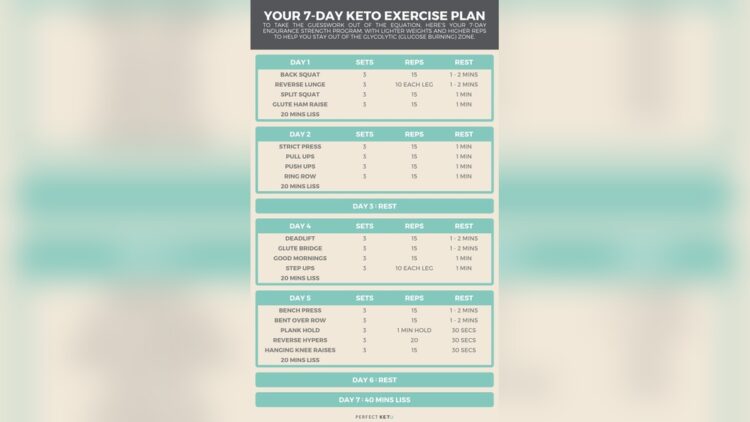Weight loss isn’t linear; it’s a non-linear process with fluctuations and plateaus. Losing weight is a journey filled with ups and downs.
Some days you may see significant progress, while other days it may feel like you’re not making any headway at all. This non-linearity of weight loss can be frustrating and confusing, especially when you’re expecting consistent results. However, it’s important to understand that weight loss doesn’t happen in a straight line.
It’s a complex and multifaceted process influenced by various factors, including diet, exercise, genetics, and hormonal changes. We’ll explore why weight loss isn’t linear and how you can navigate through the plateaus and fluctuations to reach your goals. So, let’s dive in and uncover the truth behind the non-linear nature of weight loss.
Factors Affecting Weight Loss
Weight loss is a complex process influenced by various factors. One noteworthy aspect is that weight loss isn’t always a linear journey, as it can fluctuate due to factors such as water retention, muscle gain, and hormonal changes.
Importance Of Sustainable Habits
When it comes to weight loss, many people hope for a linear journey, where the numbers on the scale steadily decline week after week. But the reality is that weight loss isn’t always a straightforward process. It’s important to understand that our bodies are complex and can fluctuate for various reasons. That is why sustainable habits play a crucial role in the weight loss journey, focusing not only on short-term results but also on long-term success.
Consistency
Maintaining consistency is key when striving for sustainable weight loss. A consistent routine helps create healthy habits and prevents falling into the trap of yo-yo dieting. Consistency not only pertains to following a balanced eating plan and exercising regularly but also involves adequate sleep, stress management, and self-care. By prioritizing consistency, you establish a foundation for success.
Nutrition
Achieving sustainable weight loss requires focusing on nutrition rather than quick fixes or restrictive diets. A well-balanced eating plan that includes a variety of nutrient-dense foods is essential for long-term success. By fueling your body with the right nutrients, you provide it with the energy it needs to function optimally. Incorporating lean proteins, whole grains, fruits, vegetables, and healthy fats into your meals ensures that you’re nourishing your body and promoting weight loss in a sustainable manner.
Exercise
Regular physical activity is another crucial aspect of sustainable weight loss. Engaging in exercise not only helps burn calories but also improves cardiovascular health and builds lean muscle mass. Incorporating activities that you enjoy, such as walking, cycling, dancing, or swimming, into your routine is more likely to be sustainable in the long run. Pairing consistent exercise with proper nutrition creates a well-rounded approach to weight loss that promotes a healthier lifestyle overall.
Understanding Plateaus
Understanding plateaus is crucial in weight loss as it’s not a linear process. Plateaus can occur, causing weight loss to stall temporarily, but with adjustments to diet and exercise, progress can continue. Keep pushing forward and stay motivated on your weight loss journey.
Understanding Plateaus Plateaus are a common occurrence in weight loss journeys and can be frustrating for those striving to reach their goals. It’s important to remember that weight loss isn’t always a smooth, linear process. Understanding why plateaus happen and how to overcome them is crucial for long-term success.Causes Of Plateaus
Plateaus can happen due to various reasons. Understanding these causes can help you address them effectively. Here are a few common reasons why plateaus occur: 1. Metabolic adaptation: Your body is smart and it adapts to changes, including a reduction in calorie intake. When you consistently consume fewer calories, your metabolism slows down to conserve energy, leading to a plateau. 2. Muscle gain: As you engage in strength training exercises, you may gain lean muscle mass. While this is beneficial for long-term weight loss, it can temporarily offset the number on the scale. Muscle weighs more than fat, so it’s possible to experience a plateau or slight weight increase. 3. Inadequate calorie deficit: The concept of calories in versus calories out is important for weight loss. If you’ve been in a calorie deficit for an extended period and have stopped losing weight, it might be time to reassess your calorie intake. Your body may have adjusted to your current calorie level, and further reductions may be necessary.Overcoming Plateaus
Plateaus are not the end of the road. By making a few adjustments, you can break through them and continue progressing towards your weight loss goals. Here are some strategies to overcome plateaus: 1. Recalculate your calorie intake: As your weight changes, so does your body’s caloric needs. Recalculate your daily calorie intake based on your current weight, activity level, and goals. This adjustment can help reignite weight loss. 2. Modify your exercise routine: Your body adapts to exercise over time, becoming more efficient. Introduce new exercises or increase the intensity to challenge your muscles and kickstart your weight loss again. Incorporating both cardio and strength training exercises can also help boost your metabolism. 3. Track your progress in other ways: Remember, the number on the scale doesn’t always reflect your overall progress accurately. Measure your success by taking body measurements, assessing how your clothes fit, or monitoring changes in your energy levels and overall well-being. 4. Stay consistent and patient: Plateaus are temporary setbacks that require patience and perseverance. Stick to your healthy eating plan and exercise routine, as consistency is key in achieving long-lasting results. Trust the process and keep your eyes on the ultimate goal. In conclusion, plateaus are a normal part of the weight loss journey. Understanding the causes and implementing strategies to overcome them will help you break through these temporary stalls and continue towards your desired weight. Remember, persistence and staying focused are the keys to success.Emotional And Mental Well-being
Maintaining emotional and mental well-being is crucial in the journey of weight loss, as it’s important to remember that progress isn’t always linear. By focusing on self-care and embracing the ups and downs along the way, individuals can achieve long-term success in their weight loss goals.
When it comes to weight loss, many people focus solely on the physical aspects, such as diet and exercise. However, it is important to remember that weight loss is not just a physical journey, but also an emotional and mental one. Taking care of your emotional and mental well-being is crucial for sustainable weight loss and overall wellness.
Stress And Emotional Eating
The effects of stress on your weight loss journey can be significant. Stress triggers the release of cortisol, a hormone that can lead to increased appetite and cravings for high-calorie, sugary foods. This can result in emotional eating, where you turn to food as a way to cope with stress and emotions. To mitigate this, it is important to develop healthy coping mechanisms for stress, such as regular exercise, mindfulness, and engaging in activities that bring you joy. Prioritizing self-care and stress management can help you avoid emotional eating and stay on track with your weight loss goals.
Self-sabotage And Motivation
Self-sabotage is a common roadblock that can hinder your weight loss progress. Sometimes, unconscious negative thoughts and beliefs about yourself can undermine your motivation and lead to self-sabotaging behaviors, such as excessive snacking or skipping workouts. Recognizing these patterns and addressing the underlying issues is crucial for long-term success. Surround yourself with positive support, set achievable goals, and practice self-compassion to stay motivated and overcome self-sabotage. Remember, every step forward counts, no matter how small.
Long-term Success Strategies
Achieving long-term success in weight loss is not a linear journey. The process involves ups and downs, plateaus, and moments of frustration. However, by adopting sustainable strategies such as healthy eating, regular exercise, and mindfulness, individuals can overcome challenges and create lasting changes for a healthier lifestyle.
Lifestyle Changes
One of the key strategies for long-term success in weight loss is making sustainable lifestyle changes. Crash diets and extreme workouts might lead to temporary weight loss, but they are not sustainable in the long run. Instead, focus on incorporating healthy habits into your daily routine. Start by making small changes like swapping sugary drinks for water, eating more fruits and vegetables, and finding enjoyable ways to stay active. Gradually, these lifestyle changes will become ingrained habits that contribute to a healthier weight over time.Accountability And Support
Accountability and support are crucial for staying on track with your weight loss journey. When you have someone to hold you accountable, whether it’s a friend, family member, or a weight loss support group, you are more likely to stick to your goals. Share your progress, challenges, and successes with them. Having someone to talk to and share your experiences with can provide the emotional support and encouragement you need to keep going. Additionally, consider seeking professional help from a registered dietitian or a certified personal trainer who can provide expert guidance and support tailored to your specific needs.Celebrating Milestones
It’s important to acknowledge and celebrate the milestones you achieve along your weight loss journey. While the ultimate goal may be to reach a certain weight or size, it’s equally important to appreciate the smaller victories along the way. These could include consistently sticking to your exercise routine for a month, resisting temptation at a social gathering, or reaching a certain number of pounds lost. Celebrating these milestones reinforces positive behaviors and boosts your confidence. Treat yourself to non-food rewards like a spa day, new workout gear, or a day off to relax and recharge. Remember, every milestone is a step closer to your long-term weight loss success. Stay motivated, believe in yourself, and keep pushing forward.Frequently Asked Questions Of Weight Loss Isn’t Linear
Can Weight Loss Happen Without Exercise?
Yes, weight loss is possible without exercise by following a healthy diet plan and creating a calorie deficit.
Why Does Weight Loss Slow Down Over Time?
Weight loss slows down because your body adapts to the reduced calorie intake and becomes more efficient at burning calories.
Is It Normal To Experience Weight Fluctuations During The Weight Loss Journey?
Yes, weight fluctuations are normal due to factors like water retention, hormonal changes, and digestion variations. Focus on long-term progress.
Conclusion
Weight loss can be a journey full of ups and downs, and it’s important to remember that progress is not always linear. Plateaus, fluctuations, and even temporary setbacks are all part of the process. Embracing this reality can help maintain motivation and prevent discouragement along the way.
Stay consistent, follow a balanced approach, and focus on long-term success rather than quick fixes. Remember, everyone’s weight loss journey is unique, so be patient and kind to yourself as you work towards your goals.
{ “@context”: “https://schema.org”, “@type”: “FAQPage”, “mainEntity”: [ { “@type”: “Question”, “name”: “Can weight loss happen without exercise?”, “acceptedAnswer”: { “@type”: “Answer”, “text”: “Yes, weight loss is possible without exercise by following a healthy diet plan and creating a calorie deficit.” } } , { “@type”: “Question”, “name”: “Why does weight loss slow down over time?”, “acceptedAnswer”: { “@type”: “Answer”, “text”: “Weight loss slows down because your body adapts to the reduced calorie intake and becomes more efficient at burning calories.” } } , { “@type”: “Question”, “name”: “Is it normal to experience weight fluctuations during the weight loss journey?”, “acceptedAnswer”: { “@type”: “Answer”, “text”: “Yes, weight fluctuations are normal due to factors like water retention, hormonal changes, and digestion variations. Focus on long-term progress.” } } ] }











Leave a Reply